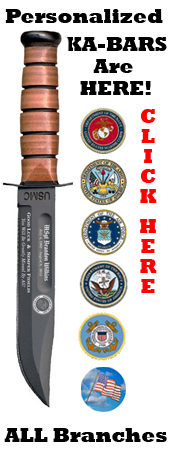The Evening Parade & Silent Drill Platoon
Welcome to Marine Barracks, Washington, D.C. Here, the past, present and future of the Marine Corps come together. This is “8th & I,” the Corps’ oldest post, and home to the most dramatic military celebration in the world–the Evening Parade.
A one hour and fifteen minute performance of music and precision marching, the Evening Parade features “The President’s Own” United States Marine Band, “The Commandant’s Own,” The United States Marine Drum and Bugle Corps, and the Marine Corps Silent Drill Platoon.
The Evening Parade is held every Friday evening from May through August. The ceremony starts at 8:45 p.m., beginning with a concert by the United States Marine Band. The Evening Parade, held every Friday evening during the summer, has become a universal symbol of the professionalism, discipline, and Esprit de Corps of the United States Marines. The story of the ceremony reflects the story of Marines throughout the world. Whether they be aboard ships, in foreign embassies, at recruit depots, in divisions, or in the many positions and places where Marines project their image, the individual Marine continually tells the story of the Corps.
Evening of the Parade Information
Seating for the Evening Parade at Marine Barracks generally requires a reservation . Guests with reservations are admitted beginning at 7:15 p.m. and should arrive no later than 8 p.m. Guests arriving after 8 p.m. are not guaranteed their reserved seating. There is no charge for admission. At the time the reservation is confirmed, a numbered admission gate is assigned to which guests should report on the evening of the parade. At approximately 8:15 p.m., guests without reservations who are waiting outside the Main Gate of the Barracks are offered unclaimed seats. As a security precaution, all guests entering the Barracks pass through magnetic detection devices. No weapons of any kind, including knives, are allowed inside the Barracks.
History of the Evening Parade
As the “Oldest Post of the Corps,” Marine Barracks, Washington, D.C., established in 1801, has performed military reviews and ceremonies since its founding. The present-day Evening Parade was first conducted on July 5, 1957.
Presidential inaugurations and specific occasions prompted the parades and ceremonies conducted at the Barracks during the early 1900s. The traditional reveille and morning muster parades were conducted with varying frequency at the post, and they eventually resulted in more formalized ceremonies. In 1934, when MajGen. John H. Russell, Jr. was the 16th Commandant of the Marine Corps, the Barracks initiated its first season of regularly scheduled weekly parades. The parades were conducted in the late afternoon, usually on Mondays or Thursdays and varied from 4 to 5:30 p.m. The parades were commonly referred to as “Sunset Parades.” The ceremonies were conducted from April to November, concluding the week of the Marine Corps Birthday, November 10.
The basic format for the eventual Friday Evening Parade was similar to that envisioned and directed by Col. Emile P. Moses and Maj. Lemuel C. Shepherd Jr., Marine Barracks’ Commanding Officer and Executive Officer respectively, in 1934. Col. Moses and Maj. Shepherd, who later became the 12th Commandant of the Marine Corps, sighted the symmetry of the parade deck: Bordered on its long axis by graceful maple trees and shrubs fronting officer’s row and the barracks’ administrative offices, to the north of the picturesque home of the Commandant, and to the south the Marine Band Hall made famous by the immortal John Philip Sousa. They conceived a balanced pageant that would perfectly match the splendor of its old fashioned setting. The shadowy arcade was envisioned by Major Shepherd, “as wings to a stage, a runway from which Marines would march to their places on the parade deck.”
Using the resplendent setting of the Barracks, wistful imagination and the Marines’ flare for showmanship, the parades were to be a showcase for the ceremonial prowess of Marines and the musical eminence of the U.S. Marine Band, which had achieved international renown under the premier military band leader of all time, John Philip Sousa.
In planning the parade sequence and format, Colonel Leonard F. Chapman Jr., the future 24th Commandant of the Marine Corps, insisted that the parade adhere to strict regulations. The parade drill would be according to “the book” with no fancy theatrics, which frequently characterized drill routines of that period. Since its inception, the Evening Parade has become a unique patriotic tradition of the “Oldest Post of the Corps”. The parade’s heritage is entwined with former military rituals such as tattoo, retreat, and lowering of the colors ceremonies. The Evening Parade is offered solely to express the dignity and pride that represents more than two centuries of heritage for all Americans


